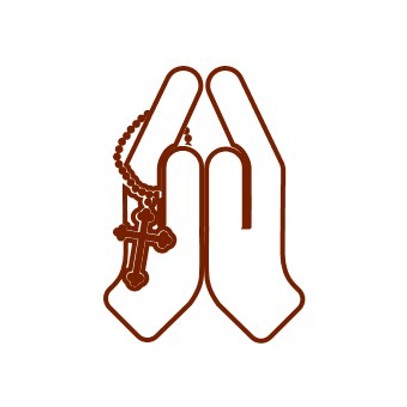Subsidiarity and Participation
Upper Primary
Who decides?

Janice (right) shows her daughters how to prepare pandanus leaves to make fibre artworks to sell. Photo: Richard Wainwright
Inquiry Question: Who decides?
By the end of this unit, students will understand that people and groups have the right to participate in decisions that affect them and, when they can’t meet their own needs, other parts of society (e.g. the government) act according to their duty to assist with resources and support.
Before you start:
- Watch the Catholic Social Teaching (CST) film, ‘Subsidiarity and Participation’, for your own background and familiarise yourself with the Subsidiarity and Participation comic
- Read/watch the stories and videos linked in this learning sequence to determine if they are appropriate for your class.
- Download the various resources referenced at the bottom of this page (worksheets, slides etc.). Print student handouts and have links ready to go on your computer/interactive whiteboard.
- Locate any Scripture passages and copies of Church texts (hyperlinked within the learning sequence below)
- Read Scripture commentaries (hyperlinked within the learning sequence below)
See-Judge-Act-Pray Process
This learning sequence has been created using the ‘See, Judge and Act’ model.
This reflection–action process was first used by a Belgian Catholic priest, Joseph Cardijn (who later became a Cardinal) with Young Christian workers prior to the first World War.
This approach was also recommended in the 1961 encyclical letter written by Pope John XXIII called Mater et Magistra (Mother and Teacher).
Definition
- from the Latin word subsidium, meaning support or assistance
- the idea that people and groups have the right to participate in decisions that affect them and, when they can’t meet their own needs, other parts of society (e.g. the government) act according to their duty to assist with resources and support
- an approach to common life that promotes participation and ensure people are architects of their own development
Student-friendly explanation:
-
All people should be able to participate in their community and have a say in decisions that affect them.
Learning intention
We are learning:
- about the impact of our decisions on people and the planet
- about the roles of governments, Caritas Australia and community members
- the importance of walking beside communities, and not making decisions for them
- how Caritas Australia listens to communities and acts to help those in need

SEE
Read or listen to One Plastic Bag by Miranda Paul. At the end of the story, explore the decisions Isatou made by using a T-chart identifying the decisions made and the impact these decisions had.
Read the full Subsidiarity and Participation Comic. Re-read the first two frames and ask students to provide additional examples to the question in the second frame. Read the third frame and explain subsidiarity.
Teacher’s Note: Subsidiarity is concerned with the idea that people and groups have the right to participate in decisions that affect them and, when they can’t meet their own needs, other parts of society (e.g. the government, partners of Caritas Australia) act according to their duty to assist with resources and support. It is an approach to common life that promotes participation and ensure people are architects of their own development.
Read the fourth frame of the Subsidiarity and Participation Comic.
Discuss: In the story, One Plastic Bag, did Isatou have the skills needed to make the recycled bags? How did she learn the skill?
Explain that Isatou did not have the skill she needed but learnt a skill with the support of someone else. Isatou and her friends decided to work together to be able to make their community look beautiful again. Organisations like Caritas Australia endeavour to work alongside communities by supporting local programs so that people can develop the skills and resources they need.
Read Subsidiarity and Participation Comic frame 5. Use the Introduction to Caritas Australia presentation to explore the work of Caritas Australia. Review slides 8 – 19 to learn about what Caritas Australia does, and review slides 22 and 23 to explore how Caritas Australia helps communities in need. See notes section for additional information.
Set-up rotation activities where students explore different case studies that highlight the work of Caritas Australia. Students will require access to one story per station where they can read or watch before answering questions relating to the case study. In small groups of 3, students are to complete the Case Study – Participation and Subsidiarity handout.
Case studies: Ronita, Shaniella, Rosalie and Laxmi.

JUDGE
Conduct ‘Ask, Seek, Knock Reader’s Theatre’ Invite students to conduct the Auslan sign for each of these words: Ask, Seek, Knock
Read Matthew 7:7-10. Explain to students that this Scripture reading explores praying. Explain God is willing to answer those who sincerely seek God. ‘Everyone who asks will receive. Everyone who seeks will find. Everyone who knocks will experience the door being opened’. There are times when we have decisions we need to make but we are unsure if we are making the best decision. In this story, Jesus’ is encouraging us to ask God for help and to listen to hear God.
Source: Scripture commentary
Now think about how this Scripture can apply to each of us. How we can be like God to others? We can listen, we can respond to the needs of others, we can welcome others into our community etc
Break the class into two groups and form inside/outside circle. Using the inside/outside circle strategy, students brainstorm possible solutions to the following question: If the government/world leaders have the power to make decisions for the benefit of everyone, why are there people who are still suffering? Repeat multiple times before encouraging students to share their responses.
Read and discuss frame 6 of the Subsidiarity and Participation Comic.
Display and discuss this quote from Pope Francis:
‘When a project is launched that directly or indirectly touches certain social groups, these groups cannot be left out from participating … The first step is to allow [people] to tell you how they live, what they need: Let everyone speak! … We cannot leave the people out of participation; their wisdom, the wisdom of the humbler groups cannot be set aside.’
Source: General Audience, 23rd September 2020
Using Think, Pair, Share strategy, engage students into a conversation about the meaning of both the comic and the quote and how they apply to each other.
Teacher’s Note: This quote reminds us that it is important to ask, seek and knock when we are working with vulnerable members of our communities.
Continuum Activity
Set up a line from one side of the learning space to the other. Label one side agree and the other disagree.
Display the sentences in the Subsidiarity and Participation presentation. Read the statements out aloud and have students position themselves on the line. Ask students why they positioned themselves where they did.

Act
As a class, brainstorm issues in the world where decisions are made to treat people or the environment unfairly (e.g. girls not having access to education, people living without access to clean water, displacement of people, communities impacted by rising sea levels). Groups select or are allocated an issue to present on.
In groups of 3 or 4 students apply the 'See, Judge, Act' process to their chosen or allocated issue- worksheet provided.
Extension: To conclude their presentation, groups share a 2 min reel, raising awareness of the issue and encouraging people in Australia to support the work of Caritas Australia. To assist students, encourage them to utilise the case studies they studied and Caritas Australia’s website.

Pray
Reading: Matthew 7:7-10
Respond: Ask each group formed in the ‘Act’ component to write a prayer on their issue. Invite the groups to share these prayers with the class. You may like to organise for additional prayers to be written on decision making, world leaders, taking action, Caritas Australia etc.
Song suggestion:
Ask Seek Knock by Hillsong Kids












